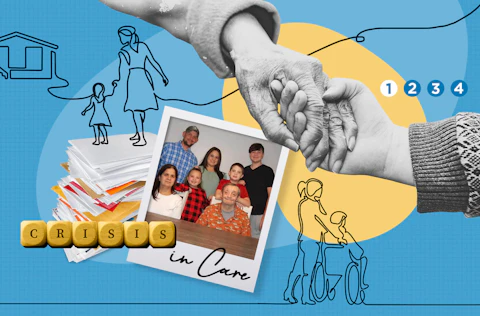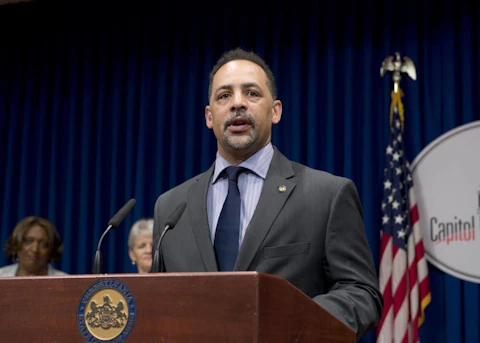Milwaukee County Executive David Crowley writes that President Biden’s Build Back Better agenda is critical to helping communities like Milwaukee expand health care to the most needy.
Expanding and improving American health care remains an urgent priority for leaders in both Madison and Washington, DC. We are now more than 18 months into a pandemic that has impacted virtually every aspect of our lives. Chief among them, the pandemic has laid bare how systemic so many of the challenges that remain in our healthcare system are.
The high cost of care, even with insurance, is a deterrent to accessing care even if you can get it. Way too many of our friends and neighbors lack even the access to the system to experience the sticker shock of care. Simply navigating the system itself is a barrier to entry, especially as the surge in virtual healthcare options has exposed a digital divide within our communities.
Now, none of this is particularly new. We have long known that communities of color disproportionately find themselves facing those barriers to access and care when compared with white residents. This is why in Milwaukee County, we’re doing everything we can to break down barriers to accessing care, including life-saving COVID-19 vaccines, because we recognize the unfortunate racist history that left behind—and in some cases, excluded— entire communities.
Two years ago, we declared racism a public health crisis and committed the county to closing the racial health disparities that exist. In order to make that goal a reality, we’ve been shifting the bulk of our focus to strategies that expand access to care, meet residents where they are in their communities, and ultimately prevent poor health outcomes for residents.
Nearly 200 communities across the nation have followed our lead and committed themselves to tackling racial health disparities, which is a great start. But this challenge is larger than any single municipality or unit of government, or even a broad coalition of them.
It is time for Washington to act so that municipalities like ours can achieve our goals of expanding and improving health care.
RELATED: Republicans Won’t Expand BadgerCare. Baldwin Wants to Do It for Them.
That’s why I was so excited to join Protect Our Care and Citizen Action of Wisconsin last month when the national “Highway to Health” bus tour rolled through the heart of Milwaukee.
Right now, Congress is considering truly impactful policy changes to the way health care is delivered in this country—changes that will benefit everyone, while having an outsized impact on the very communities that have suffered the most due to systemic racism. That’s what I call a “win-win.”
President Biden’s Build Back Better Agenda, which has cleared initial votes in both the House and Senate, includes a landmark measure to bring down prescription drug prices by giving Medicare the power to negotiate for lower drug prices directly with drug makers. This one change is expected to save patients more than $150 billion on their prescription drugs.
Biden’s plan would also make permanent changes to the Affordable Care Act subsidy which would make coverage more affordable in the marketplace. The bill would also expand Medicare to include hearing, dental, and vision, meaning more of our seniors would have access to essential care that directly impacts their overall health and well-being.
Here in Wisconsin, special interests have blocked the federal expansion of Medicaid for more than a decade—costing the state hundreds of millions of dollars while making access to care more difficult for the working poor.
Thanks to Senator Tammy Baldwin and her colleagues from Georgia, the legislation pending before Congress will also finally offer an option to states like ours by expanding Medicaid—the single most important step we can take to reduce racial disparities in health coverage.
Closing the Medicaid coverage gap means an estimated 2.2 million people—60% of whom are people of color, and 324,000 of whom are disabled—would get access to quality insurance at little or no cost.
All of these changes are possible, the opportunity is there for real progress, because we have a president leading the charge to improve health care and champions like Senator Baldwin in the majority.
But we have a role to play too—all of us. As individuals and as a community it is on us to share our stories. Our fears that keep us up at night and our hopes and dreams for our kids that are being disrupted by inadequate, unaffordable care. When we use our voices, when we make sure those in a position to do something about it know what is really going on…that is when we see change.





